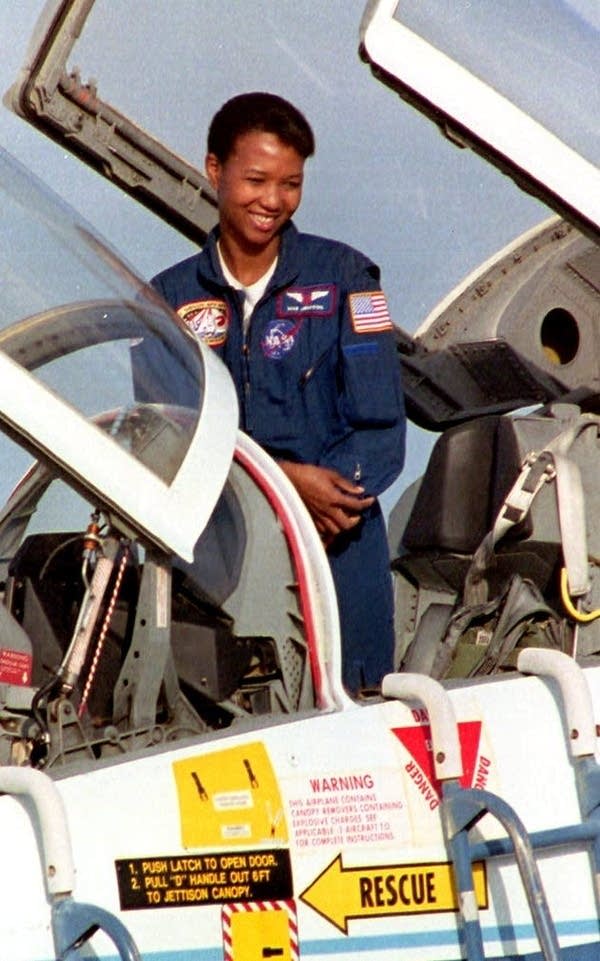Radiation, space travel, dinosaurs: Six fascinating books on women scientists

Go Deeper.
Create an account or log in to save stories.
Like this?
Thanks for liking this story! We have added it to a list of your favorite stories.
"Let me tell you about my trouble with girls," biochemist and Nobel laureate Tim Hunt said this week. Hunt was speaking at the World Conference of Science Journalists in South Korea.
"Three things happen when they are in the lab. You fall in love with them, they fall in love with you and when you criticize them, they cry," he said, according to conference attendee Connie St. Louis. His comments were shared on social media, and the worldwide uproar was immediate.
Many have found his subsequent apology underwhelming. "I'm really sorry that I said what I said," he told BBC Radio. "It was a very stupid thing to do in the presence of all those journalists"
In the spirit of scientific exploration, The Thread recommends these books about women and science.
Turn Up Your Support
MPR News helps you turn down the noise and build shared understanding. Turn up your support for this public resource and keep trusted journalism accessible to all.
Six fascinating books about women scientists

1) "Obsessive Genius: The Inner World of Marie Curie" by Barbara Goldsmith
Let's start with a heavy hitter: Marie Curie, the first woman to win a Nobel Prize and the first person ever to win twice. Her groundbreaking research into radioactivity is hailed as one of the most influential events in modern science. Goldsmith's dazzling portrait of Curie reveals the woman behind the science and the mind behind the myth.
2) "Headstrong: 52 Women Who Changed Science — and the World" by Rachel Swaby
This collection came together after the New York Times' much-derided obituary for rocket scientist Yvonne Brill. "She made a mean beef stroganoff," it began. It went on to mention her following her husband from job to job and taking time off work to raise three children. It didn't get to her work on a groundbreaking propulsion system until the second paragraph. (It has since been revised.)
Spurred by this snub, Swaby compiled profiles of lesser-known innovative women scientists from around the globe. The result is a breezy and fascinating read, and a good reminder of the people who haven't yet found a spot in text books.
3) "Find Where the Wind Goes" by Mae Jemison
Start 'em young! In this book for young readers, ages 12 and up, Jemison gives a firsthand account of her life, from her childhood in Chicago to her achievements at NASA. In 1992, she became the first African-American woman in space. Jemison charts how she went from dreaming about space as a child to actually floating, weightless, on the space shuttle Endeavour.

4) "Rocket Girl: The Story of Mary Sherman Morgan, America's First Female Rocket Scientist" by George D. Morgan
You may have never heard of Mary Sherman Morgan, but it's time to correct that oversight. Hailed as the unsung hero of the space age, Morgan was born on a farm in North Dakota in 1921. She pursued her interest in chemistry and eventually landed a position at an aviation laboratory in California. It was there that she formulated the liquid fuel Hydyne, which helped boost the country's first satellite into space. In "Rocket Girl," Morgan's son George recounts his mother's tremendous life.
5) "The Fossil Hunter: Dinosaurs, Evolution and the Woman Whose Discoveries Changed the World" by Shelley Emling
Mary Anning found her first dinosaur when she was only 12 years old. The year was 1811, and Anning uncovered an ichthyosaur in the cliffs on England's southern coast. Her discovery poked a hole in the then-dominant theory that animals did not go extinct. It helped pave the way for works like Charles Darwin's "On the Origin of Species." Emling brings this unknown story to life, along with a fascinating account of 19th century paleontology.
6) "Rosalind Franklin: The Dark Lady of DNA" by Brenda Maddox
High school students studying DNA have heard of James Watson and Francis Crick, but it wasn't until recently that Rosalind Franklin's name started to enter the conversation. Franklin made critical contributions to the discovery of DNA's structure, but she died several years before the Nobel Prize was awarded.
Her work largely fell into obscurity until Watson himself suggested — much later in life — that Franklin should have been honored as well. Maddox's account of Franklin's career offers a glimpse of a woman largely left out of history.



